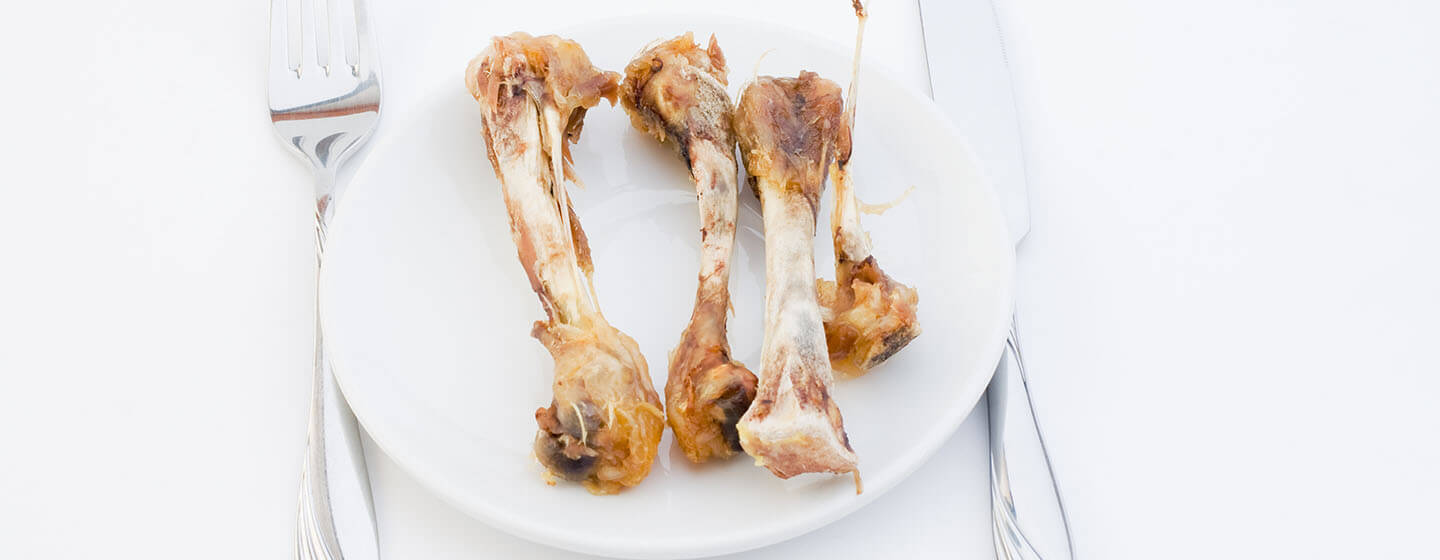
The sight of a dog gnawing on a bone is a common one. It’s something we’ve all seen many times on screen, in cartoons, movies, and TV programs, to the point that some of us would not even think twice before throwing our dog’s remaining bones in the trash. Yet, maybe you’re causing more damage than good by giving your dogs bone scraps. Should dogs not be allowed to eat bones, and what are the possible consequences of doing so?
Read on to learn whether your dog will benefit from eating bones.
Should I give my dog a bone?
If you’ve been doing research on the topic of bone feeding for your dog, you’ve likely come across some contradictory information. This is due to the fact that although there are advantages to giving your dog a bone, there are also dangers. We don’t recommend giving your dog bones because of the potentially fatal consequences.
Sharp bone splinters provide a significant threat to your dog’s digestive system and should be avoided at all costs. Numerous issues, such as those listed below, may result from this
- Tongue or mouth injuries.
- Damage to the throat or oesophagus.
- Rectal bleeding.
- Peritonitis (a bacterial infection of the abdomen caused by stomach or intestinal punctures).
The symptoms of such issues may be glaring at times, but they may sometimes be more subtle. If your dog seems sick or uncomfortable after eating a bone, you should take them to the clinic immediately.
There’s also the possibility that a bigger chunk of bone may become stuck in your dog’s digestive system if it were to be swallowed. In this instance, your dog may feel ill, look pale, and maybe throw up or have diarrhea. Again, if you see any of these symptoms, don’t hesitate to call your vet.
Bones provide a choking hazard in addition to digestive issues. A major choking threat exists if your dog swallows a bone fragment that has been chewed off in the incorrect direction.
Some dogs can chip their teeth from too much bone-eating. And lastly, your dog might become constipated from chewing on bones too much since bones aren’t totally digested.
Due to these dangers, we strongly advise against giving your dog any bones. The answer to the question “can dogs eat chicken bones?” also applies to “can dogs eat lamb bones?” and “can dogs eat pig bones?”
Is it better to give your dog cooked or raw bones?
Due to the inherent fragility of cooked bones, they pose a unique hazard to canine consumers. For this reason, if your dog ever gets their paws on a cooked bone, you should keep a close eye on them for any indications of disease.
While raw bones are more durable than cooked ones, it’s still not a good idea to give them to your dog because of the risk of splinters. They also pose their own unique dangers. There is a higher risk of Salmonella contamination from raw bones. Besides making your dog sick with diarrhea or vomiting, this may also increase the concentration of germs in his feces, some of which might be infectious to people. Because of this, you should also never give your dog a raw bone.
The flesh that can be extracted from the bones is also important. If you want to know more about the topic, check out our post on whether or not it’s okay to feed your dog pork.
Don’t you think it’s nice to give your dog a bone every once in
The flesh, cartilage, and fat that are naturally linked to uncooked meaty bones are a rich source of protein and other essential elements. It’s true that dogs may benefit from the minerals and protein found in bones, but if you’re giving them a full and balanced diet, they shouldn’t require any supplemental bone food.
People often feed their dogs bones to help them maintain healthy teeth. If your dog enjoys a good chew, it may help keep tartar and plaque at bay on his teeth. Saliva production is prompted by chewing, and this produces certain antibacterial compounds that may aid in keeping the mouth clean. Fortunately, there is a wide variety of safe chews you may offer your dog to maintain healthy teeth and gums instead of bones. Certain dental chews, for instance, really do a very good job of removing plaque.